Just a quick announcement before I get into the topic at hand: the Behind the Photo edition of the newsletter is no more. We’re back to a monthly essay sent out on the first Saturday of the month.
Sadly, an email newsletter is not a great fit for something as image-heavy as a behind-the-scenes explainer. Every time I wrote one up, I got a warning message saying that it would be clipped because it was too long.
I don’t like making concessions such as removing important visuals when I’m teaching so these how-I-got-the-shot posts will probably go on my main blog. (Yes, I have a main blog!)
Ok, on to this month’s (short) topic…
One of the most common reasons that toy photographers give for not taking photos is a lack of motivation. They don’t have any fresh ideas, they don’t have the right gear or location, or pitifully, they didn’t get enough engagement on the last photo they shared (hey, I hear you can buy blue checkmarks to fix that though).
These demotivation traps trick you into believing that the result is what matters more than anything else. But hobbies are rarely about the results: they’re about the activity.
Think about other hobbies like playing D&D, reading, antique hunting, or whatever. It’s when we are doing them that we enjoy ourselves. It’s the same case for toy photography.
It’s the process, not the result
Many toy photographers think that a creating a great photo, accumulating likes, or a getting featured in a respected photography group is the whole point of the hobby.
They put little value in shooting, and focus on the outcome of it instead.
So when they don’t create that breathtaking image or it flops on social media, suddenly photography's not worth doing anymore.
That's just bizarre thinking to me.
The most “successful” toy photographers I know are the ones who are in love with the process. From planning to editing, there’s a part of the workflow they relish in.
They don’t kick themselves for not producing a masterpiece every time they hit the shutter button. If anything, they’ll learn from it: “next time I’m going to try doing this instead of that.”
And they certainly don’t care if the internet thinks their work is boring or too infrequent. They’re not shooting to wow you, nor are they counting how many likes they get to see if they should shoot again.
They will because their goal is to have a good time taking photos. Even after they know they’ve already got the shot, they’ll keep shooting because they love it.
Street photographers like Garry Winogrand and Vivian Maier didn't even develop their rolls of film! Imagine loving the process so much you don't even need to see the photo. Much less display it.
I could never not look thanks to having a digital camera that makes it super easy, but I don't always share my photos publicly.
Sharing isn’t part of the process
I got into this hobby just before Instagram launched on Android (my OS of choice) and so I wasn’t introduced to toy photography that way as most people have been.
Back then, Instagram was all about square selfies and terrible filters which were just every level of cringe for my tastes. I mean, it’s still cringe but just not in those ways anymore.
For about a year, my toy photos only lived on my phone and in an occasional email. I often ran out of local storage so I hosted them on my own website until I found Tumblr and Flickr to do it for free. I treated both platforms as image hosts and little more than that. In other words, I didn’t use them to connect with people.
Because I started out not having a social platform for my photos or at least not using them that way, I feel like I’m pretty impervious to Instagram and its nudges to perform for it. I’ll admit I wasn’t initially, but then I realized how pointless the metrics are and now I give absolutely zero f*cks about what it asks for.
This is all to say that sharing on social media, and Instagram in particular, isn’t part of my photography process. I mean, it’s not a creative part. That process ends when I finish the edit, and all the fun and fulfilling parts are done at that point.
I do share publicly though so I can look back on my photos easily, and because it’s free lol. But what comes after that— the likes, the comments, the follows— I don’t really care. It won’t affect what I create, how I create, or when I create.
If you want to share without the accompanying noise that comes with it, post on Flickr and Tumblr where metrics and algorithms take a backseat to creativity.
This is bold to suggest, I know. Many of you surely have your brows furrowed right now and are muttering about a lack of engagement there.
Precisely, people.
Again, it’s time to be very honest with yourself about what’s really important to you and act accordingly.
You, too, can enjoy photography without ever posting your work for others to see.
Ask yourself: is Instagram affecting my love of photography in a bad way? Yes? Then get rid of it. It’s not even part of the creative process.
Remember it’s a hobby
If you’re struggling with a lack of motivation, refocus and remember what really brings joy to you in this hobby.
I’ll bet that you didn’t start out trying to capture the perfect, never-before-attempted concept (lol) or to impress a bunch of strangers on the internet. Maybe you’re doing that now though and that’s why you’re demotivated.
When you started, you did it for yourself and you had fun doing it.
Go back to that and you’ll probably land in that group of successful photographers yourself. (Unless you’re a digital marketer/content creator whose actual goal is hitting those social media metrics— but why are you here reading about a personal hobby?)
The bonus of loving what you’re doing is that you’ll likely become better at photography because you practice more. And when you notice you’re becoming better, you naturally want to look for more challenges to overcome because it’s fun.
If, however, you don’t really enjoy the process of taking photos, um, maybe photography is not a good hobby for you. Find something else to do. Toy collecting is an excellent hobby and one you’re probably already into if you’re reading this.
Motivation is a myth if you know why you’re really taking photos. Get shooting for the love of shooting instead of for the results.
My Stardew Valley Farmhouse Project
Just wanted to share some personal LEGO news here: my Stardew Valley MOC has achieved support on LEGO Ideas!
That means 10,000 fans voted for it to become a real set. So now it’s in the Review phase where LEGO will officially examine the concept and determine if they want to put it into production.
It’s a long shot but I always take a chance. You can’t win if you don’t play.
Here’s the project page (voting closed) if you want to take a peek: Stardew Valley Farmhouse on LEGO Ideas
Toy Photography Features
Train model photography is something I’ve been wanting to try for such a long time but can’t get myself to do because I’m afraid I’ll start collecting HO scale figures and objects.
They’d probably take up less space than my LEGO collection, but still, I have to be strong and stick to just one toy line, for my sanity and my wallet.


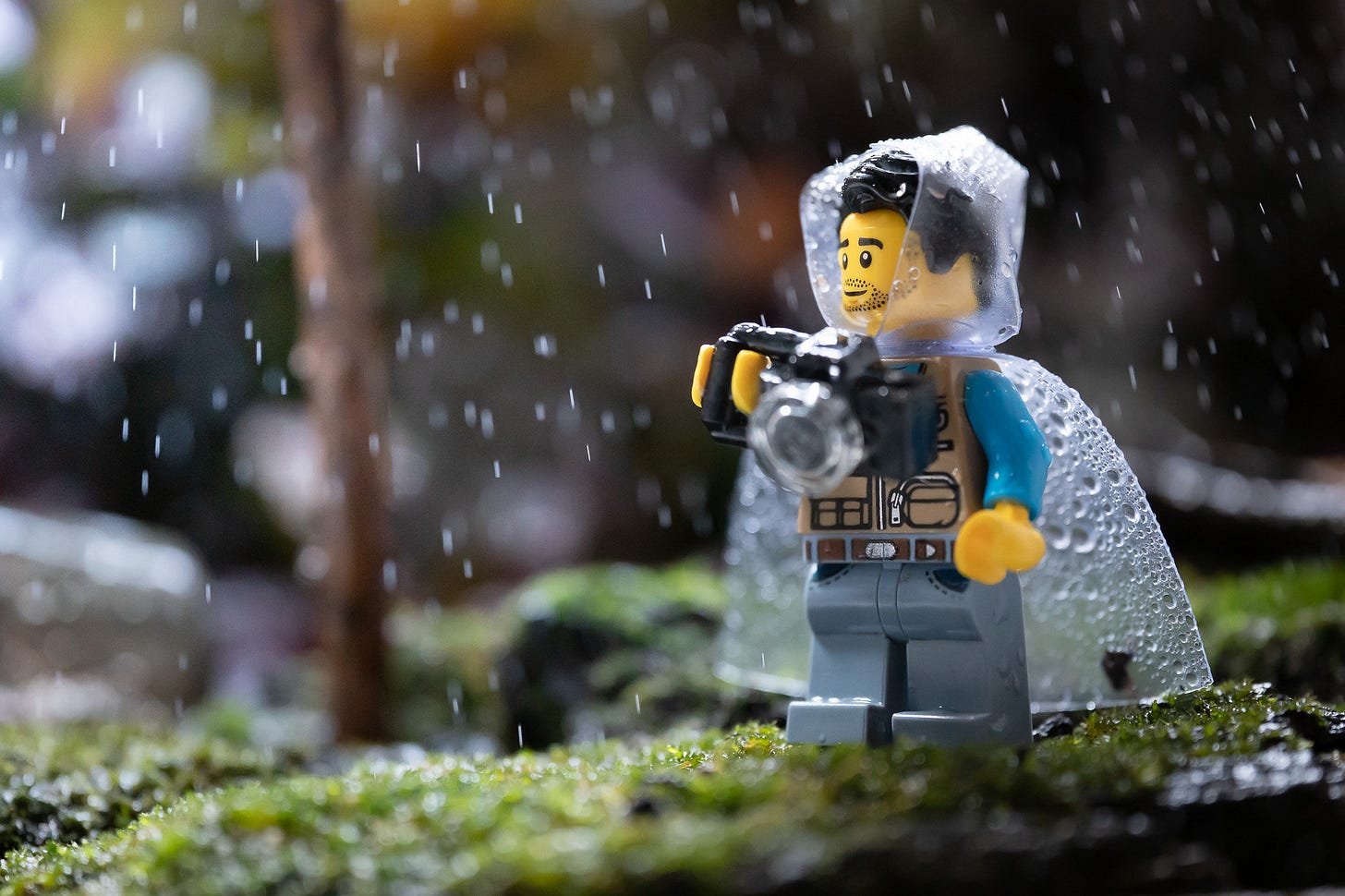
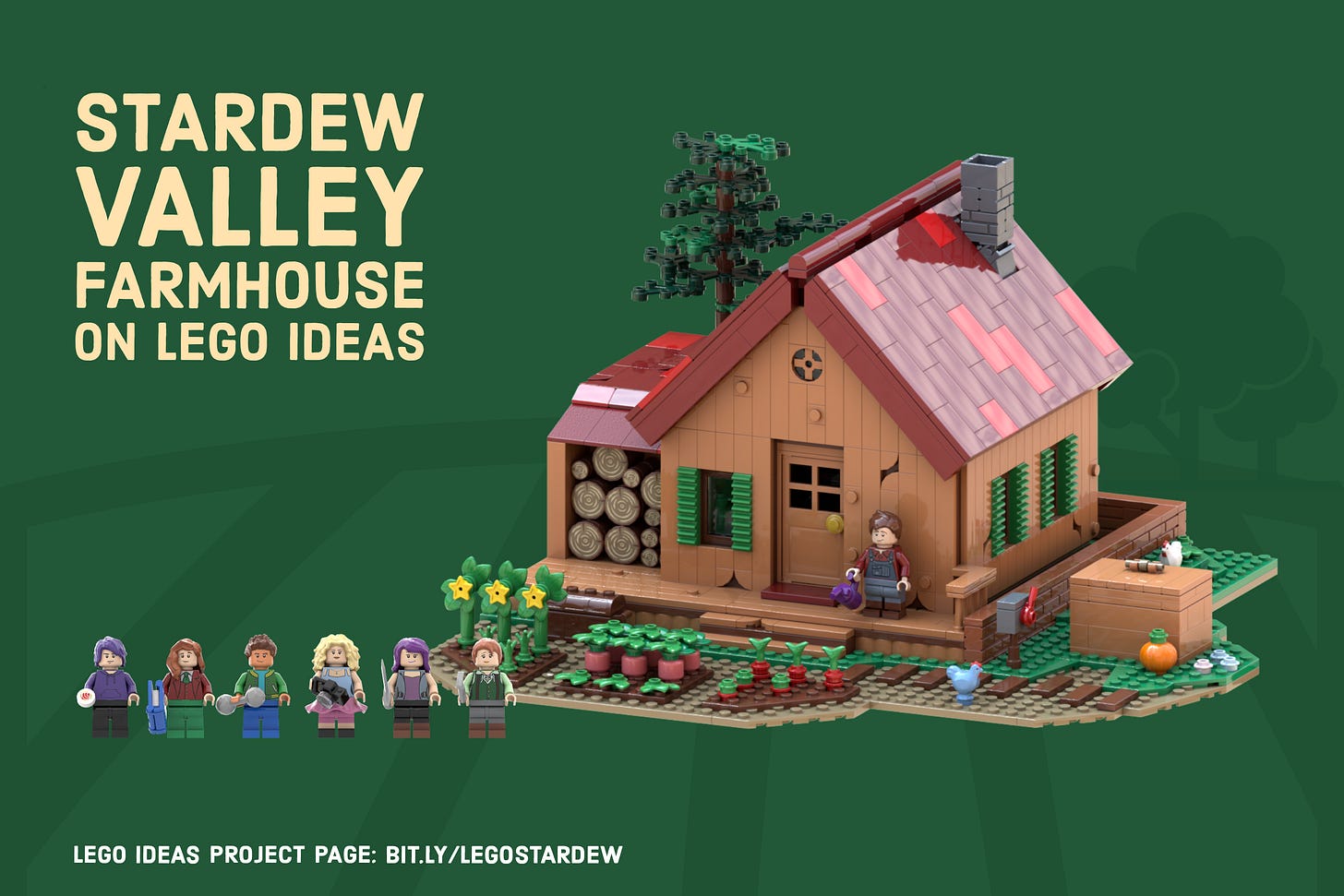
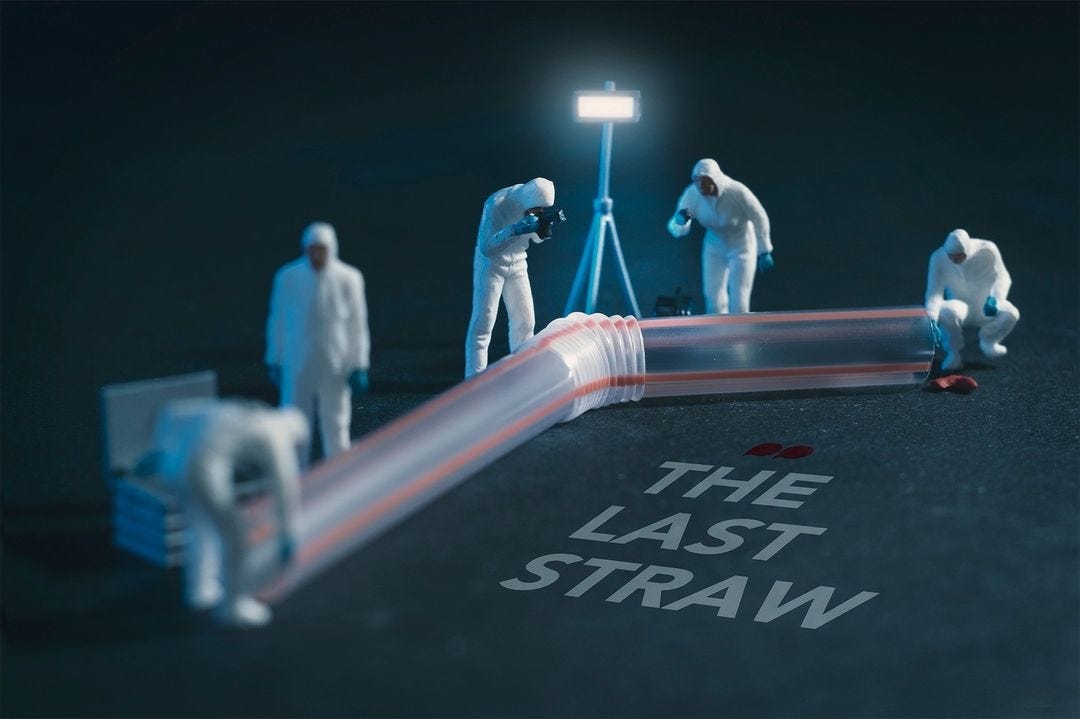
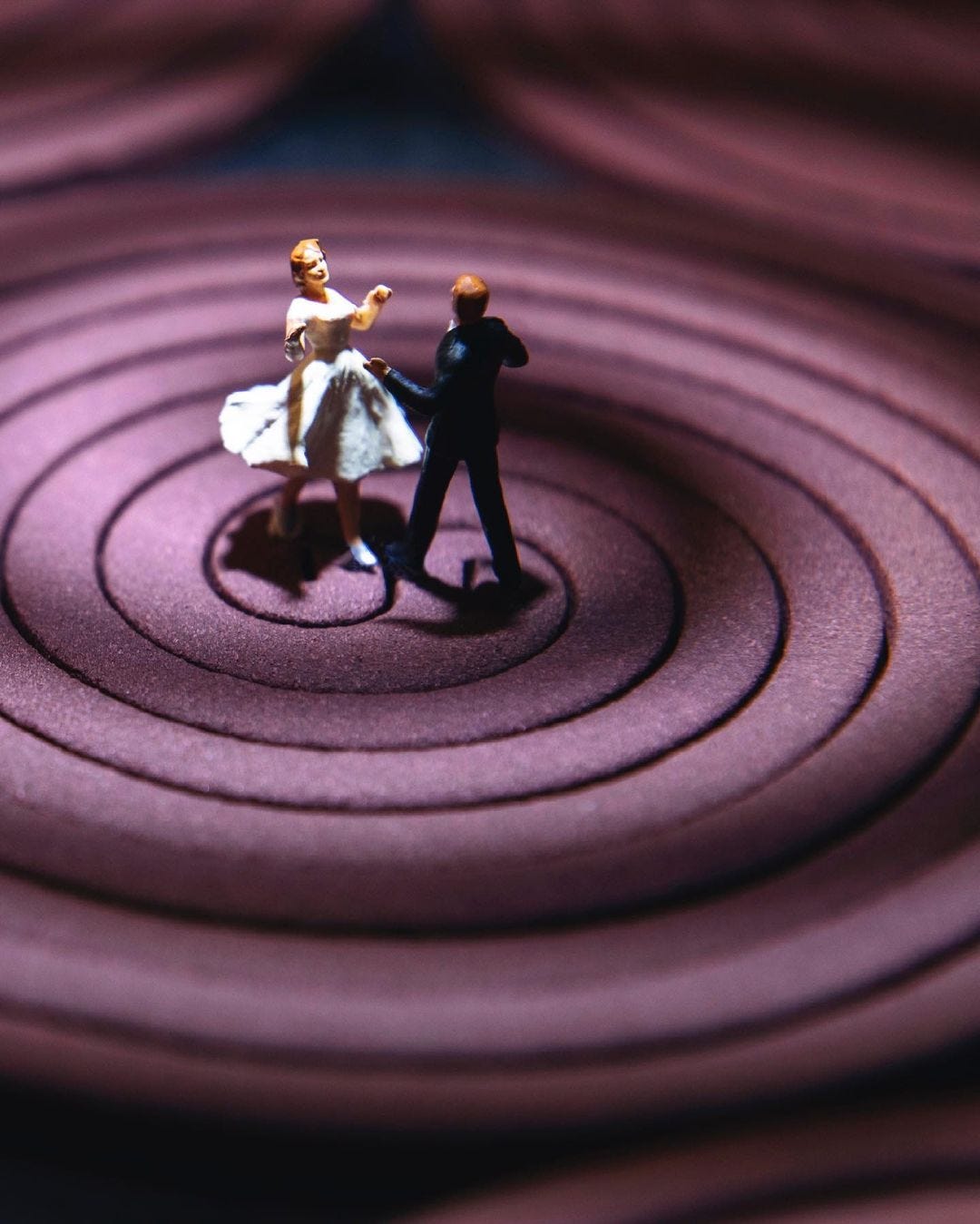
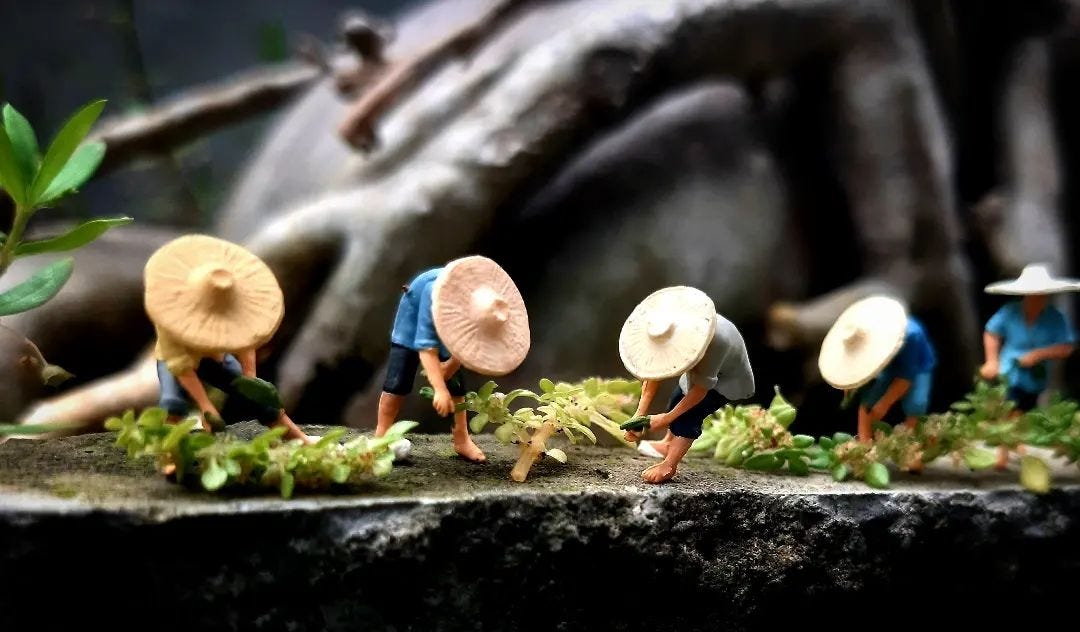
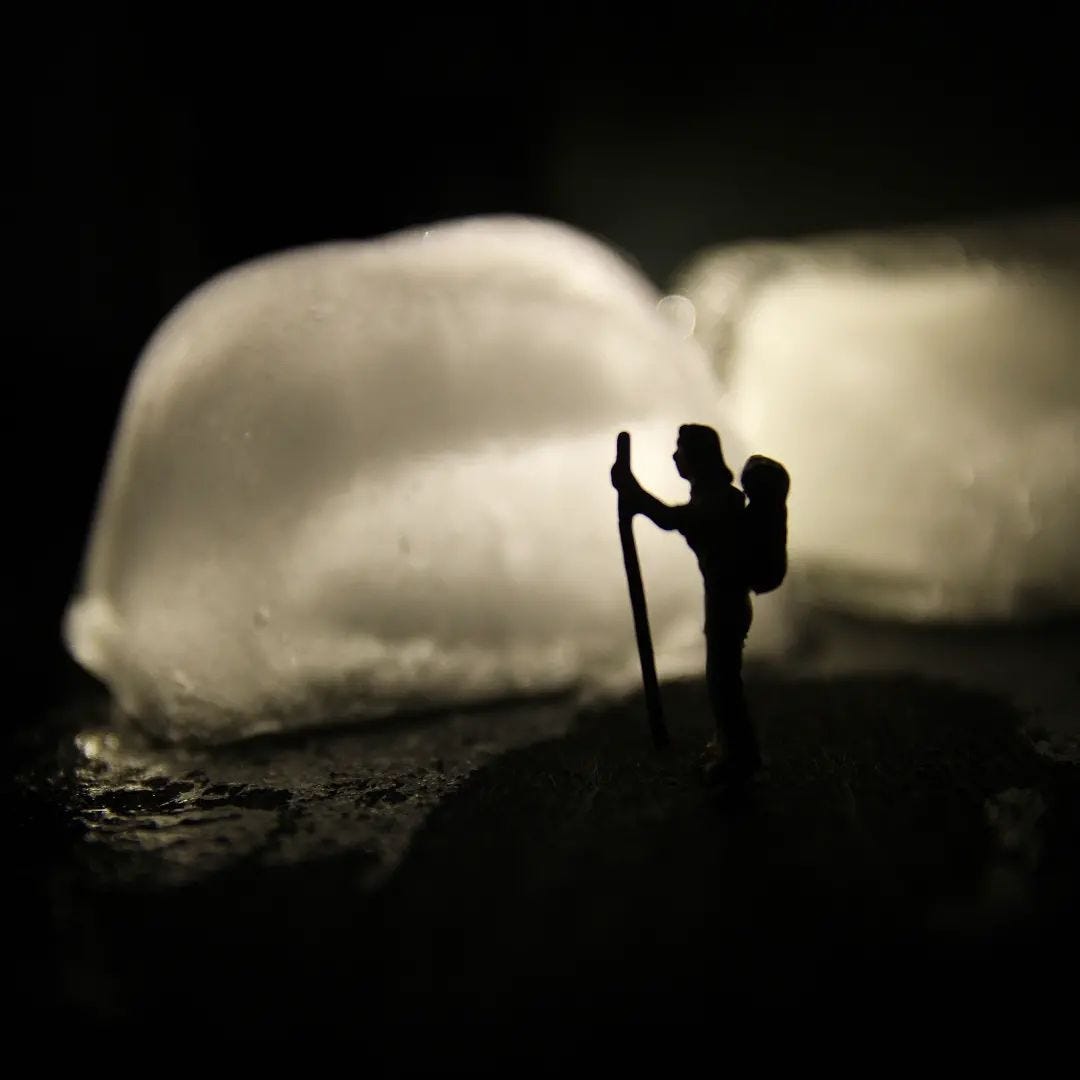
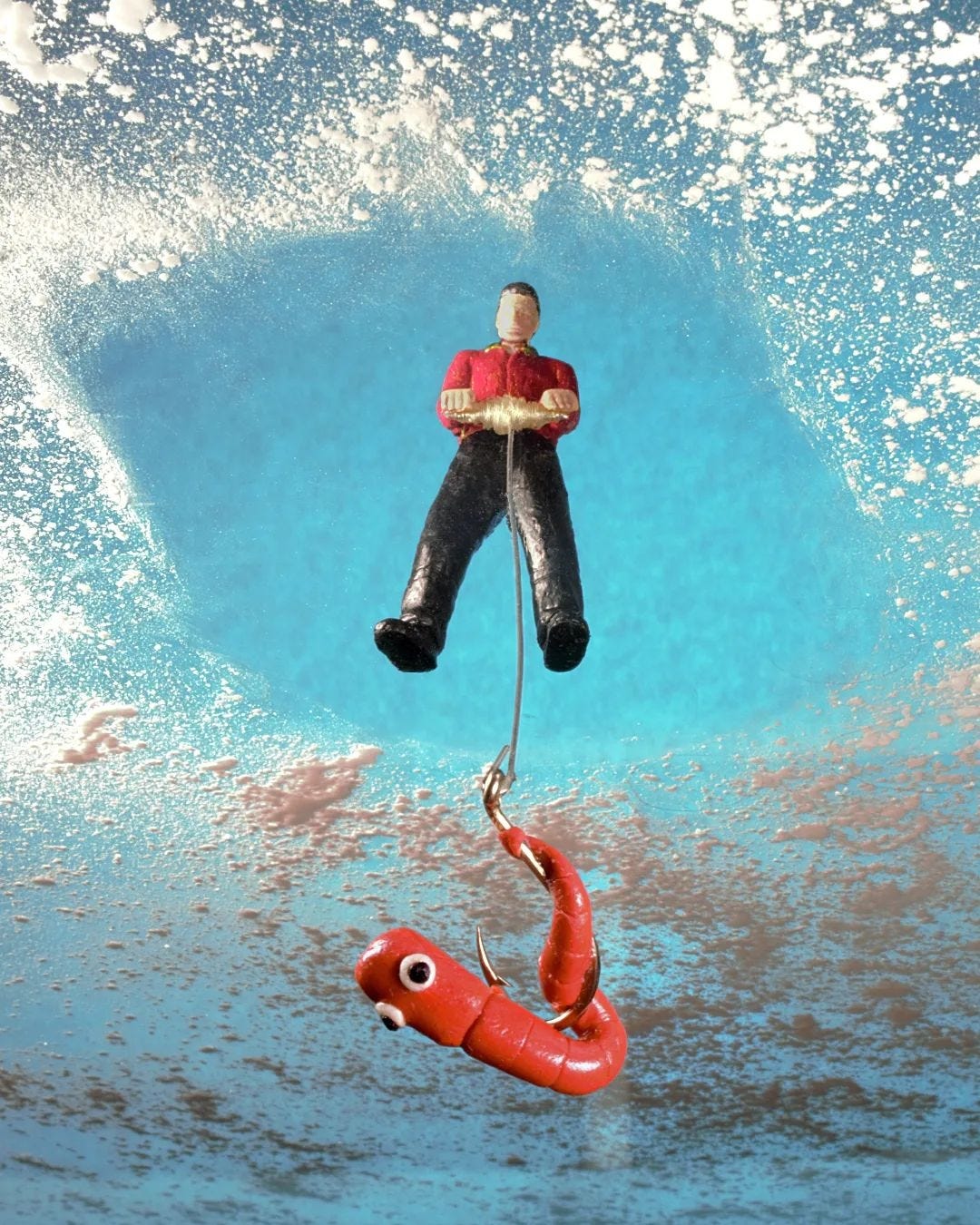
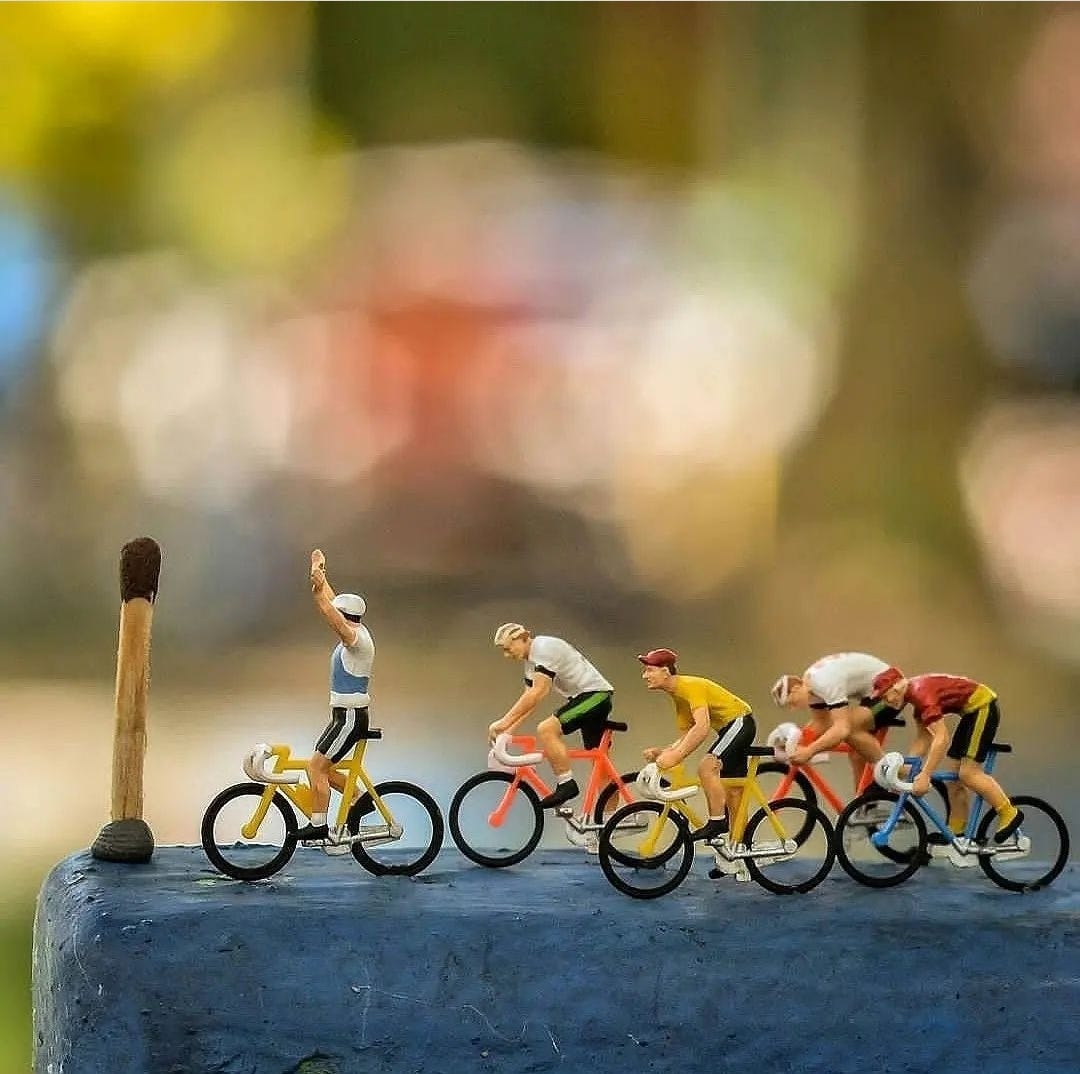
Interesting read as usual! I find that sometimes I might say I don't feel motivated but that's true of other hobbies too like video games or playing basketball. All fun to do it but sometimes I'm just not in the mood for that particular hobby. So maybe motivated is not the right word because I agree with the sentiment of your post
I've been working in fits and starts lately, due to distractions in another part of life, not lack of ideas. My shot list is long, but my brain just hasn't been in the game. And it's been infuriating, because I love the process, love rolling my sleeves up and losing all sense of time, love editing and captioning and all of it. I find it as meditative as my wife finds building. Happily, the distractions are easing up so the process is firing up!